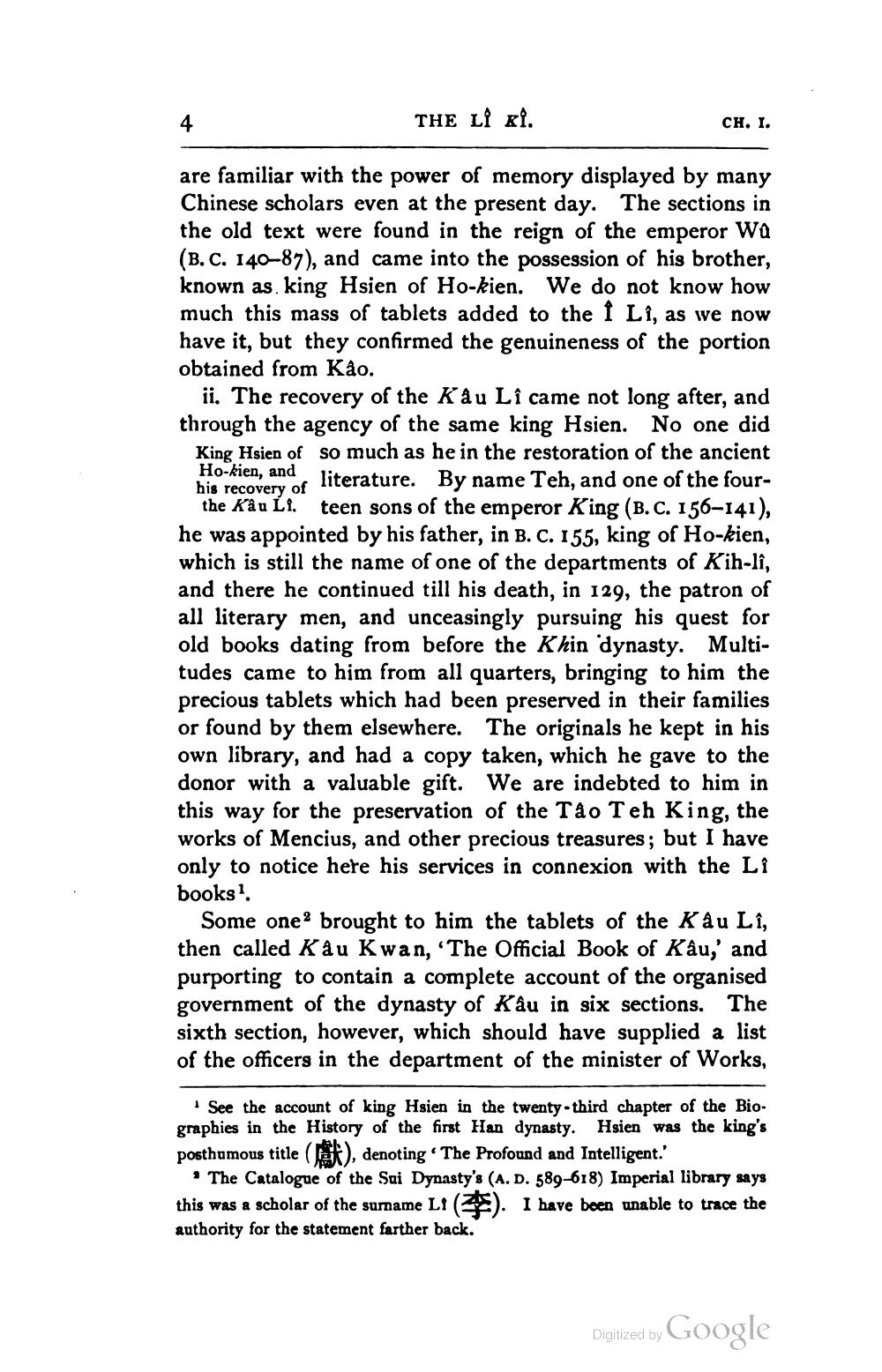________________
THE Li ri.
CH. 1.
are familiar with the power of memory displayed by many Chinese scholars even at the present day. The sections in the old text were found in the reign of the emperor Wa (B. C. 140-87), and came into the possession of his brother, known as king Hsien of Ho-kien. We do not know how much this mass of tablets added to the I Lî, as we now have it, but they confirmed the genuineness of the portion obtained from Kào.
ii. The recovery of the Kau Lî came not long after, and through the agency of the same king Hsien. No one did King Hsien of so much as he in the restoration of the ancient Ho-kien, and his recovery of her
f literature. By name Teh, and one of the fourthe Kâu Lf. teen sons of the emperor King (B.C. 156–141), he was appointed by his father, in B. C. 155, king of Ho-kien, which is still the name of one of the departments of Kih-lî, and there he continued till his death, in 129, the patron of all literary men, and unceasingly pursuing his quest for old books dating from before the Khin dynasty. Multitudes came to him from all quarters, bringing to him the precious tablets which had been preserved in their families or found by them elsewhere. The originals he kept in his own library, and had a copy taken, which he gave to the donor with a valuable gift. We are indebted to him in this way for the preservation of the Tao Teh King, the works of Mencius, and other precious treasures; but I have only to notice here his services in connexion with the Li books?
Some one? brought to him the tablets of the Kâu Lî, then called Kau Kwan, The Official Book of Kâu,' and purporting to contain a complete account of the organised government of the dynasty of Kau in six sections. The sixth section, however, which should have supplied a list of the officers in the department of the minister of Works,
See the account of king Hsien in the twenty-third chapter of the Biographies in the History of the first Han dynasty. Hsien was the king's posthumous title ( k), denoting. The Profound and Intelligent.'
The Catalogue of the Sai Dynasty's (A. D. 589-618) Imperial library says this was a scholar of the surname LI ( ). I have been unable to trace the authority for the statement farther back.
Digitized by Google




